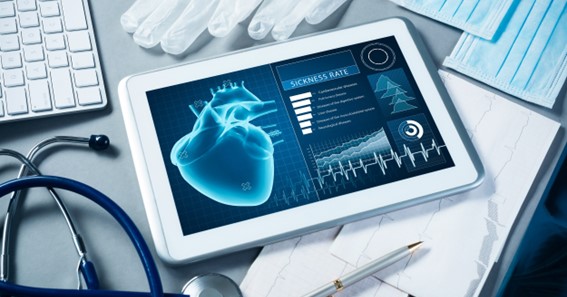Are you looking for ways to increase productivity and manage time efficiently at your medical practice? There are a ton of responsibilities at a medical practice, such as collecting, organizing, and securing patient data and scheduling appointments. Minor issues such as poor communication and record-keeping issues can affect your practice’s reputation. However, with the right tools, such as medical billing software for anesthesiology, your practice can improve your patient’s experience and reduce costs. That said, here are some technological tools and solutions to consider for your medical practice.
Electronic Health Records System (EHR)
EHR converts uncoordinated data into more actionable medical information. It decreases medical errors and allows your office staff to connect efficiently with your patients. A practice with a front desk full of paperwork and paper clutters looks less inviting than one using an electronic health record filing system.
In addition, the EHR system shares your patient’s medical information in a secure platform. It will allow you to do follow-ups with your patients, update medication reminders, and share their test results via email or phone. EHR systems also enable medical practitioners to easily track their patient’s medical history when they come in for treatments.
Medical Billing Software
As a doctor, you have to manage bills which can be complicated when you include bill refusals and rejections. All this can be made more accessible if you have powerful software to help you submit claims and bill the services you have provided. As you shop for your billing system, do look out for the following features:
- The bulk billing feature enables you to submit more than one claim at a time.
- Transparent report management will tell you what is getting paid and what services are being paid for.
- Collaboration tools that you can use together with your team members.
- A rejection management feature.
Cybersecurity
You should invest in a cybersecurity plan for your medical practice to protect your data and systems from malware threats and cyberattacks. Some of the professional cybersecurity measures you can engage in include intrusion detection and prevention systems, firewalls, and secure emails. Ensure you also practice impenetrable password management and two-factor authentication as additional security to protect the practice’s confidential data.
Patients Portal Software
This is software that makes your patients active participants in their health management. They will get to interact with your office regularly without the need for constant calls or appointment requests. Your patients will only be required to log in to their medical portal and update the necessary information.
To avoid misuse of the software, have a security wall that will require cross-checks and approvals by your office staff before the changes reflect on your patient’s records. Patients’ portal software encourages a sense of interaction and engagement with your patients even after they’ve left the clinic.
Data Recovery Software
This important technology medical solution will ensure you don’t lose all the essential data. The computer may have a virus or an unexpected hardware malfunction that could lead to data loss. A secure data recovery system will automatically back up any vital data to an outside source, thus ensuring you retain access to all your patients’ information.
In conclusion, embracing the advancing technology as a medical practice will help you maintain productivity, seamless office running, data protection, and meeting compliance regulations. It will also make it easier for your patients to schedule appointments and engage with your office without the need for calls.
Click Here – 3 Easy Ways to Boost Your Immune System: Unveiling the Power of Quality Sleep






